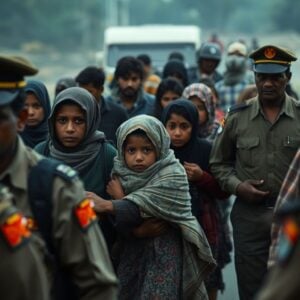The Islamist armed group Islamic State in the Sahel Province (IS Sahel) has intensified attacks against civilians in Niger since March 2025, according to Human Rights Watch, committing atrocities that constitute war crimes under international humanitarian law. In at least five documented incidents across the Tillabéri region, the group executed more than 127 villagers and worshippers, burned and looted homes, and terrorized communities. Witnesses reported that warnings to the Nigerien army often went unanswered, leaving villages exposed to violence and destruction.
The Tillabéri region, situated near the borders with Burkina Faso and Mali, has long been a hotspot of insurgent activity. Islamist groups linked to both IS and Al-Qaeda have targeted military and civilian populations, destroyed schools and religious sites, and enforced harsh restrictions. Testimonies gathered by Human Rights Watch from witnesses, activists, journalists, and doctors revealed a pattern of killings, mosque attacks, and mass displacement. Many survivors described gruesome scenes, including massacres in places of worship and indiscriminate shootings that left bodies scattered in villages.
Specific incidents included the June 21 assault on a mosque in Manda village, where more than 70 worshippers were gunned down during morning prayers, and the March 21 massacre in Fambita, where 46 people were killed inside a mosque and dozens of homes were burned. Other attacks in Dani Fari, Abarkaize, and Ezzak involved the killing of men and children, the looting of homes and livestock, and the burning of entire hamlets. In many cases, the attackers justified their actions by accusing villagers of collaborating with the army or refusing to pay the zakat demanded by the group.
The military junta, which seized power in 2023 promising to restore security, has launched counterinsurgency campaigns, including airstrikes and civilian defense initiatives. However, critics say the army has failed to adequately protect vulnerable communities, arriving days after massacres or, at times, treating displaced villagers with suspicion and hostility. Human Rights Watch has also previously documented abuses by both Islamist groups and Nigerien security forces, raising concerns of a cycle of violence and impunity.
International law prohibits deliberate attacks on civilians, looting, and executions, and Niger has a legal obligation to investigate and prosecute war crimes. Human rights advocates stress the urgency of stronger civilian protection measures, impartial investigations, and accountability for perpetrators. Survivors continue to demand justice and effective security guarantees as IS Sahel expands its reign of terror across western Niger.







